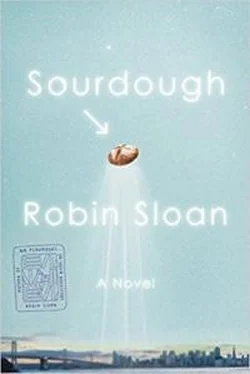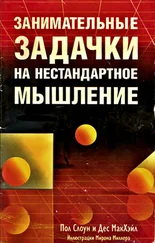There were a few message threads pinned to the top of the forum—perennial references. One of them had been created six years ago and boasted seventy-nine pages of commentary. Its title was: THE JAY STEVE $200 VALUE OVEN (VERSION SIX).
I investigated. There were pictures, captured in a backyard that presumably belonged to Jay Steve. The grass was brown and patchy. There was a chain-link fence and a plastic dog dish.
And there was an oven, neither Byzantine nor beautiful. Instead, it was fully Mad Max : a squarish jumble of brick and metal. If I’d stumbled across the picture in a different context I would have assumed I was looking at the remains of a very small shanty following a great conflagration. The lines were askew; the metal was rusted; the bricks around the door were stained black with char.
Following Jay Steve’s initial post (his profile picture was the affable snout of a golden retriever) were the seventy-nine pages of comments in which the carb nerds proposed tweaks of all kinds—different dimensions, different materials—but at some point all conceded: this was a badass little oven.
I could acquire all the materials at the expedient big-box home-supply store. Unfortunately, my car was minuscule and its tiny engine moaned even when it was carrying just me and zero home supplies over San Francisco’s hills. I knocked on my upstairs neighbor’s door, and when Cornelia appeared, I asked her if I could borrow her car.
“Nobody drives it but me,” she said. “You need to go somewhere? I’ll drive you. What day is it? Yeah. I should get out.”
Cornelia’s car was her defining feature. I saw it approximately a hundred times more often than I saw her: a battered green Honda CR-V that was always parked directly in front of the house, except for when Cornelia was working, when she replaced it with four traffic cones. As I watched, she removed them from the trunk and plunked them down.
The car’s windshield was bordered with the badges and shields of every extant on-demand delivery service, along with several that were now defunct. While she navigated us to the expedient big-box home-supply store just south of the city, she swiped through a long carousel of apps with one hand and, I sensed, ninety percent of her attention. “Nah,” she murmured. “Nah. Nah. Nah.”
Cornelia was a highly strategic pawn in the on-demand delivery marketplace. Most hours of most days, she lounged at home in her sweatpants. But she was at all times monitoring the apps, and at the moments when demand burned blue-hot—Friday nights, often, but also random Tuesdays when the fog was at its thickest, suggesting to people that they ought to stay home and ponder their lives over delivered Burmese food—Cornelia would spring into action and earn a thousand dollars in a tire-screeching rally worthy of Bullitt . When it rained, she paid her rent in a day.
At the expedient big-box home-supply store, I wound my way through the towering aisles, following the shopping list provided by Jay Steve. I amassed thirty-six cinder blocks; two hundred and twenty-six plain red bricks (not firebricks, which Jay Steve claimed were for “luxury ovens only”); one bag each of clay and sand; one two-by-four cut to measure; and a supply of kindling, which the store sold in neat boxes.
When I returned to the car with three polo-shirted helpers pushing three different carts laden with materials, the trunk of Cornelia’s CR-V was already open and she was perched on the bumper, swiping through her phone, wearing a satisfied, catlike look. While I had shopped, she had completed two delivery missions, earning fifty dollars.
She ferried me and my materials back to Cabrillo Street, the CR-V riding noticeably lower to the ground, and there we hauled my acquisitions one by one around the side of the building into a heap in the backyard.
“What are you doing out here?” Cornelia huffed at last.
I told her, with as much confidence as I could muster, that I was constructing a wood-fired brick oven in our backyard.
“How … crafty.”
She retreated to the front of our building. I considered its bulk. It was charmless, a blank expanse of stubbly pseudo-stucco broken by just two windows: mine at eye level, Cornelia’s above. The appropriate next step in this project would have been to contact the property management company, explain what I wanted to do, perhaps offer to increase my security deposit by some as-yet-unknown amount, and hope for official assent.
It was early evening.
The sky was a low ceiling of fog.
I shooed away the Cabrillo Street cats.
I beat back the weeds.
I built the oven.
It was shockingly easy because the instructions had been refined by Global Gluten’s collective cleverness into something approaching IKEA-grade ease, and also because it was just a box. A box for fire.
I stacked the cinder blocks to mid-thigh, forming the oven’s base. Then I assembled its floor and walls and ceiling, three bricks thick all around, leaving a gap a few bricks wide for the door. Finally, I mixed the clay and sand with water to make a mortar that I slathered into the cracks between bricks. I did this with my bare hands, as Jay Steve recommended. Whatever mortar remained I painted onto the oven’s top and sides.
The bricks were the crux of it, Jay Steve explained. Prior to this just-in-time education, I had assumed that in a wood-fired brick oven, the flames of the fire baked the bread. I mean, of course, right? Wrong. Baking in this oven would be a two-step process, and the first was for the fire to charge those thick walls with heat. The thicker the walls, the more heat they could absorb and then return. In an oven like this, it was the bricks, not the fire, that baked the bread.
My oven looked like a gloppy cube, without even the crudest approximation of the graceful heat-reflecting domes that topped the fancier designs. But Jay Steve was insistent: Ugly ovens bake great bread.
The crowning touch was the door, a plug of thick wood built from the two-by-four cut to measure.
The sun had set. Fog was rolling into the yard, cold and dense. The oven was done. I stepped back to appraise it. It looked like a pile of junk. It was a success.
I wanted badly to try it out, but here, Jay Steve cautioned, impatience spelled doom. Before I could bake with it, I had to cure the oven by building a very small fire, then growing it larger, and larger still, all over the course of several hours, until I had reached peak flameage (about 800 degrees), and, in the process, coaxed the latent moisture out of the bricks. If I rushed the process and baked at full strength right away, the oven would crack. It would become even uglier, and, worse, it would never bake in fully badass fashion.
I pushed a few logs inside, arranged them in a loose triangle, tucked some kindling into place, and lit my first fire. It smoked and fumed. A lick of flame appeared, inspected its nest, proclaimed it satisfactory, and began to crackle.
There were four ancient lawn chairs lying in a tangle behind the recycling bin, evidence of long-departed residents, with vines growing through their seats. I ripped away the vines, carried one of the chairs to the oven, plopped it down, and sat.
I waited.
It was cold, maybe forty degrees. I dashed inside to retrieve a blanket, my jacket, and an additional sweater, and when I returned to the lawn chair, I piled them all on top of myself. I slithered one hand through the heap to grasp and manipulate my poker (a long straight stick gleaned from the back of the yard) while keeping the skin–air interface to a minimum.
I had another thought, and with reluctance I dismantled my insulating heap to go back inside and retrieve the Clement Street starter in its crock. Wary of the cold, I wedged it into the lawn chair next to me, then built the heap on top of it. I figured the starter ought to be present for the beginning of this important next phase in our work together.
Читать дальше










